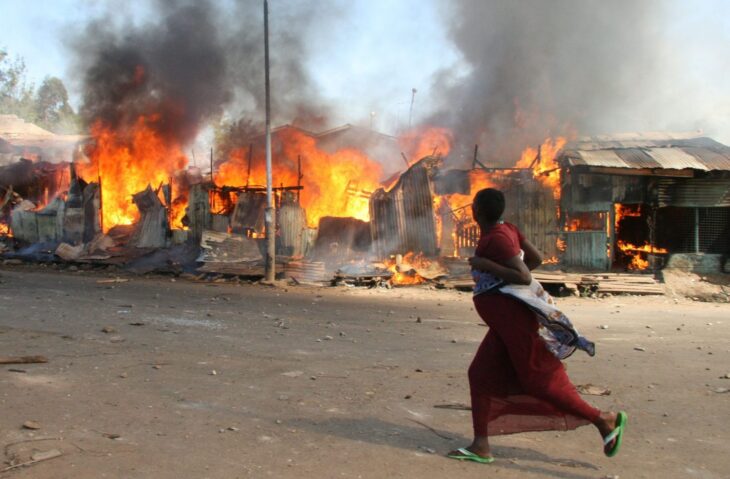NAIROBI, Kenya, Jun 27- More than a decade after the 2007-08 Post Election Violence that claimed more than 1,000 lives in Kenya and left 600,000 others internally displaced, the country is staring at yet a highly charged succession election, with pundits saying stakes are high for every player.
In 2007, it all started after the Electoral Commission of Kenya officially declared that the incumbent President, the late Mwai Kibaki the winner.
Supporters of the opposition candidate Raila Odinga accused the government of electoral fraud and rejected the results.
The two had fallen out after a triumphant victory against the Kenya Africa National Union presidential candidate Uhuru Kenyatta in 2002.
In those dark days, the media is said to have played a role in fanning the violence.
A few weeks to the elections, senior journalists who were in newsrooms during the period says the country is in a more precarious situation.
They saw friends turn foes in newsrooms, then, due to politics. While dynamics are different, they are concerned with the now worrying trend of journalists openly showing their allegiance to a certain political faction, and more so on their social media platforms.
“The thing that causes violence in this country is betrayal…and that is also echoing through the fallout of the ruling Jubilee party,” Consulting Editor and Trainer Ken Bosire said.
It however becomes complicated, he said, when the media ceases to play its oversight role and get immersed into politics.
For media not to fall into what Bosire terms as the “2007 trap”, he said players in the sector must take a step back and put the interests of the country first.
“We were fingered as being part of the violence because we took very clear sides,” he said of the 2007 situation.
Of the Kenyans who faced international crimes against humanity in the Hague, among them President Uhuru Kenyatta and his Deputy William Ruto, was journalist Joshua Sang.
“What is alarming, is that the stakes are very high in this election, just like in any other transition election,” Bosire pointed out.
He spoke during a Twitter Space hosted by the Crime Journalists Association of Kenya on Friday evening in collaboration with the Independent Medico-Legal Unit.
The weekly spaces are supported by the Canadian Embassy in Kenya.
His rallying call to journalists is to remain professional, to avoid being misused by the politicians.
His sentiments were echoed by the Crime Journalists Association of Kenya chairperson Dominic Wabala, who says more than ever, politicians now know the value of media.
“They want to use media to control the narrative, their own way. And that is very dangerous,” says Wabala, a Kenyan based journalist for more than two decades.
Wabala pointed out that, “All the candidates have picked up media personalities to actually control the narrative. The misfortune is, we have been bought to control the narrative of politicians.”
Leila Mohammed, currently working for the Nairobi based NTV has also covered post-election violence during her 10-year experience as a journalist and said journalists must remain professional.
She covered incidents of political violence in 2013 and 2017 elections.
There are however other emerging challenges as the country gears to the August 9 elections, and Bosire said the “near rogue” social media platforms top the list.
The open involvement of civil servants in critical departs like ICT and Security in active politics is also a cause for alarm, Bosire said.
“We are dealing with a very vibrant and near rogue social media space,” he said.
“As the media we have a responsibility. I would urge that we do not behave like a sign post that would point it is two kilometres to the CBD and yet it has never been there.”
The panelists urged journalists to strike a balance while reporting, to ensure media platforms are not used to create further divisions.
“Every word we echo from the politicians when they are on the platform with that mic is going to be that fuel that is going to douse everything else,” he cautioned.
They however pointed out that with the continuing trainings by the Media Council of Kenya, more journalists are ready and up to the task.
Want to send us a story? Contact Shahidi News Tel: +254115512797 (Mobile & WhatsApp)


